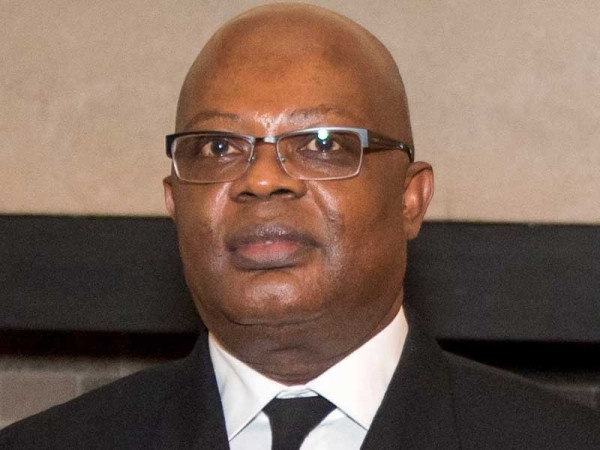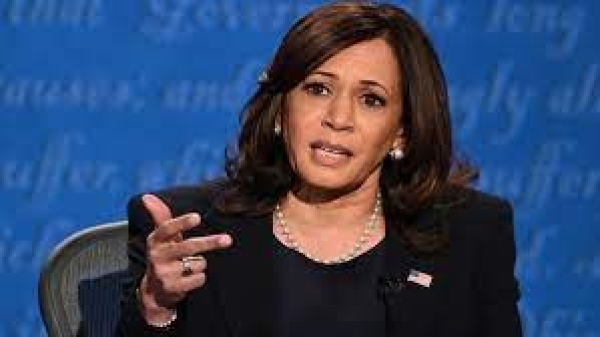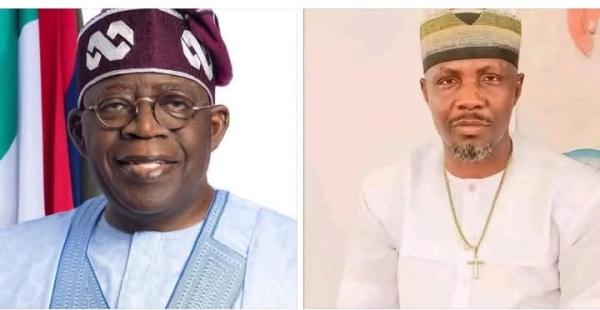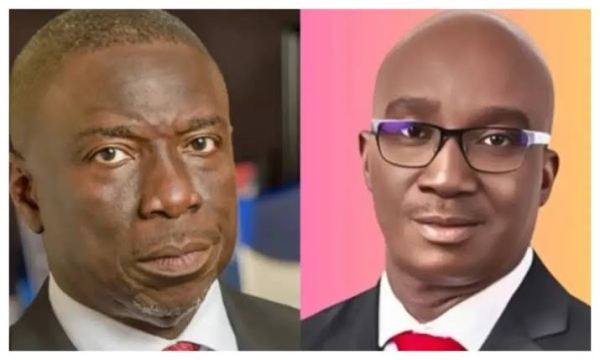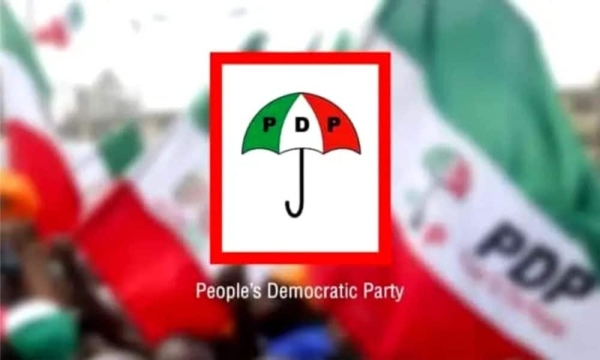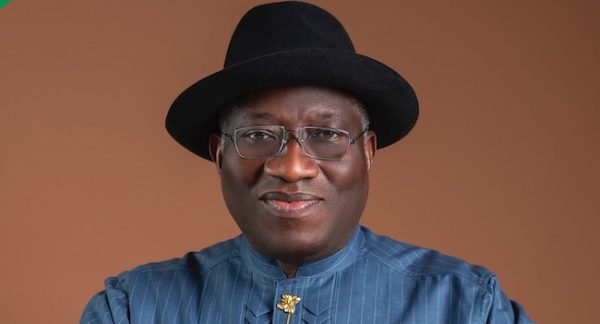TOP NEWS
Reuben's View
Latest News
Search
MOST READ
-
Beyond the game: 10 Super Eagles players with academic degrees
-
Real Madrid may trade Vinicius Junior for Osimhen
-
Opposition Coalition Gains Momentum, Backs Single-Term Presidency for 2027
-
We Are Not In The Senate To Fight Executive Arm Of Govt – Lawmakers Dismisses Rubber Stamp Claims
-
House Of Reps Sends Fresh Warning To Rivers Administrator, Ibas, Gives Directives On Law Making
-
Plateau killings: ‘We just tested what communities are feeling’ - Plateau SSG escapes terrorists ambush
-
Crude price crash: Petrol can drop below N400/litre — Refiners
-
Tears, sadness as 4 popular Nigerian gospel singers perish in fatal motor accident
-
No country has developed under democracy — Burkina Faso President
-
2027: Coalition pushes for single-term candidate
-
Edo Governorship Election Tribunal Judgment ‘Leaked’ Ahead Of Official Announcement - See Documents
646 times -
Meet ex-basketballer appointed as NNPC board chair; new GCEO
438 times -
[OPINION] The Uromi 16 And The Problem With Nigeria - Reuben Abati
436 times -
Rivers State Sole Administrator, Ibas, Set to Present Fresh 2025 Appropriation Bill
408 times -
US presidency: Barack Obama worked against Kamala Harris after Biden dropped out – Jonathan Allen
389 times -
Tompolo, HOSTCOM endorse Tinubu for re-election in 2027
388 times -
U.S. Gov’t Raises Concern Over Tribunal Judgment On Edo Guber Election
385 times -
Mass Exodus Hits APC, LP, NNPP As Over 5,000 Members Decamp to PDP in Benue
379 times -
Jonathan has set example in political maturity, says council
362 times -
RCCG: Pastor Adeboye Renames Church
362 times








![[OPINION] The Uromi 16 And The Problem With Nigeria - Reuben Abati [OPINION] The Uromi 16 And The Problem With Nigeria - Reuben Abati](https://mail.reubenabati.com.ng/cache/mod_bt_contentslider/848d0c6943c9a9cb7639e8f5640d2cbf-4b585f7414a3fc875b761851d4c5fcd4_XL.jpg)
![[OPINION] Breakfast With The Soludos - Reuben Abati [OPINION] Breakfast With The Soludos - Reuben Abati](https://mail.reubenabati.com.ng/cache/mod_bt_contentslider/a98b5c30f61dcb10378fdba9f5e472ab-33b747862875f50d863e709f5955da5d_XL.jpg)
![[OPINION] The Emerging Coalition Against Tinubu/APC - Reuben Abati [OPINION] The Emerging Coalition Against Tinubu/APC - Reuben Abati](https://mail.reubenabati.com.ng/cache/mod_bt_contentslider/ddd6416fbaa008a5bcbc568f0e3c8857-02972c9f0dee40a6ad85830afbb49758_XL.jpg)
![[OPINION] Nasir El-Rufai’s Defections: PDP, CPC, APC, SDP - Reuben Abati [OPINION] Nasir El-Rufai’s Defections: PDP, CPC, APC, SDP - Reuben Abati](https://mail.reubenabati.com.ng/cache/mod_bt_contentslider/817d1e0c4d951b18f15f406968204870-61d46cc1859ac5d4f70406214a7d7e4f_XL.jpg)
![[OPINION] A World Of Godfathers - Reuben Abati [OPINION] A World Of Godfathers - Reuben Abati](https://mail.reubenabati.com.ng/cache/mod_bt_contentslider/f282a08e8e116be2577cc430882505bc-6d66582218d28730d47a7b9a32e18004_XL.jpg)
![[OPINION] Babangida’s Book - Reuben Abati [OPINION] Babangida’s Book - Reuben Abati](https://mail.reubenabati.com.ng/cache/mod_bt_contentslider/c8905774fa75570e79f747809f6c142f-4452414e756ce827f8bc4b72b9376062_XL.jpg)
![[OPINION] Ayo Adebanjo and Alaperu Basibo: In Requiem - Reuben Abati [OPINION] Ayo Adebanjo and Alaperu Basibo: In Requiem - Reuben Abati](https://mail.reubenabati.com.ng/cache/mod_bt_contentslider/32644a58ca6a6a9730d34e04e0b971d4-29f647f2f922ae7f6d08ba2b3025e7df_XL.jpg)
![[OPINION].The Coming Food Revolution In Lagos - Reuben Abati [OPINION].The Coming Food Revolution In Lagos - Reuben Abati](https://mail.reubenabati.com.ng/cache/mod_bt_contentslider/a460cd374cf73b084bed0ea4a95f3470-f0e6dbf155e463f366df4402ca7102d3_XL.jpg)
![[OPINION] From Trump to Grammy Blues - Reuben Abati [OPINION] From Trump to Grammy Blues - Reuben Abati](https://mail.reubenabati.com.ng/cache/mod_bt_contentslider/68a7f0df2b79f07ef9aa4da35fd3551f-a59719664df1d85791c7a182eca4b6a0_XL.jpg)
![[OPINION] Tanker Explosions, Avoidable Deaths - Reuben Abati [OPINION] Tanker Explosions, Avoidable Deaths - Reuben Abati](https://mail.reubenabati.com.ng/cache/mod_bt_contentslider/d2e1e077711de20c5c40eeecc39c245f-8aaa25cc2241805d2decc75cc3486ec5_XL.jpg)
![[OPINION] The Second Coming Of Donald Trump - Reuben Abati [OPINION] The Second Coming Of Donald Trump - Reuben Abati](https://mail.reubenabati.com.ng/cache/mod_bt_contentslider/3b214f2ffde1cfc7a1b2cf68cbf556f8-e0b50b219590b369fb715ce040483314_XL.jpg)
![[OPINION] Of Wildfires, Los Angeles, Obasa And Other Human Stories - Reuben Abati [OPINION] Of Wildfires, Los Angeles, Obasa And Other Human Stories - Reuben Abati](https://mail.reubenabati.com.ng/cache/mod_bt_contentslider/2db7a112c548580c2fe54624dacb7951-419b0256c841d7d9b34a61d986a2e894_XL.jpg)

















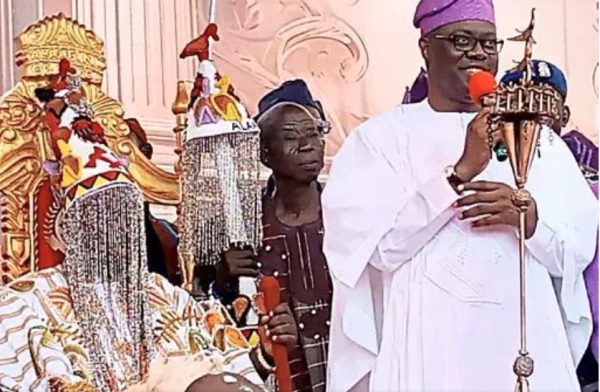


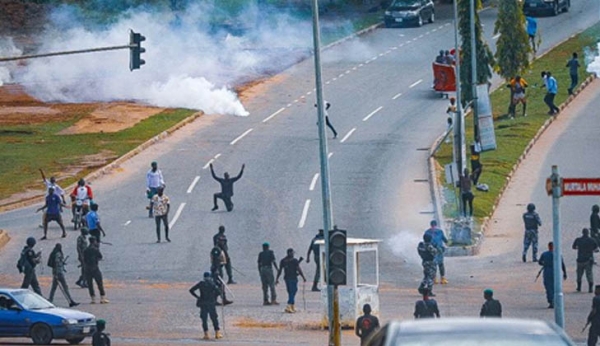


![[OPINION] Why Governments Depend Less on Local Researchers in Nigeria - Tunji Olaopa](https://mail.reubenabati.com.ng/media/k2/items/cache/7e596c84ab5d2a397c253c4d1b29b6f3_XL.jpg?t=-62169984000)
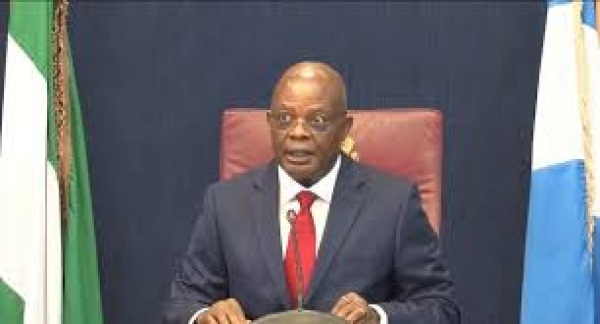
![[OPINION] NNPC Leadership: Agenda For Faltering Oil Giant - Dakuku Peterside](https://mail.reubenabati.com.ng/media/k2/items/cache/94a3d5fc62c8d13a514f3e3ea2fb1e57_XL.jpg?t=-62169984000)
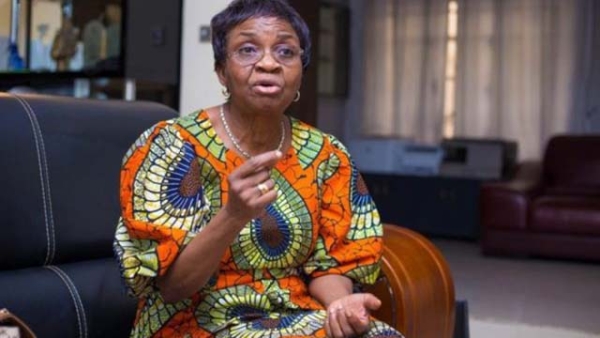


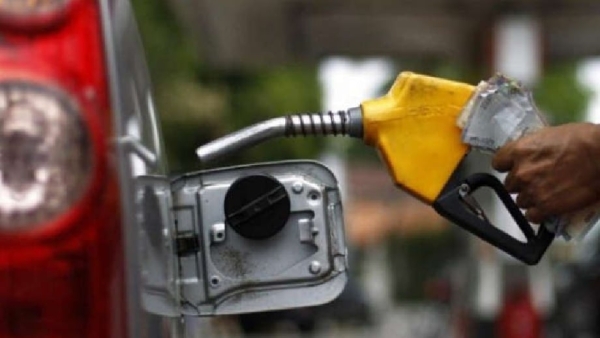

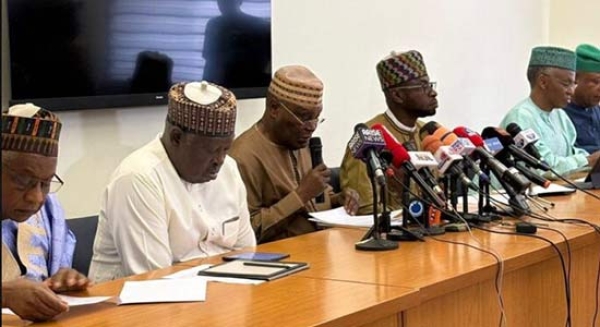

![[OPINION] Tinubu administration: Many spokespersons, zero communication - Temidayo Akinsuyi](https://mail.reubenabati.com.ng/media/k2/items/cache/b98cc5934c036201f867ff57bca9b273_XL.jpg?t=-62169984000)
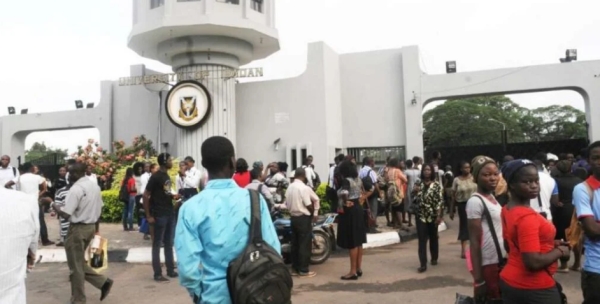
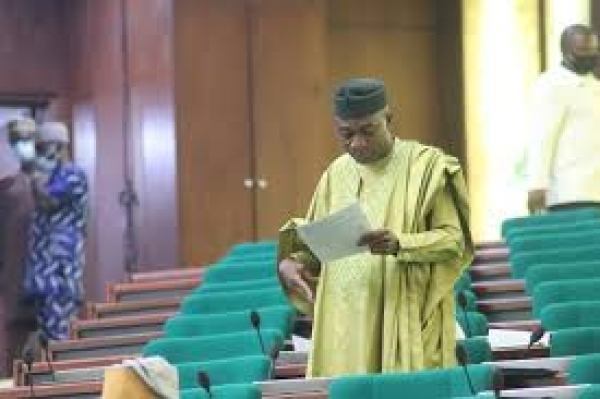
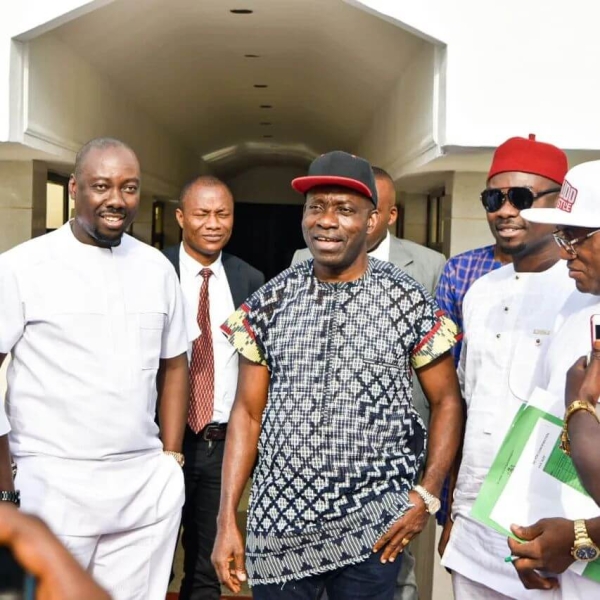
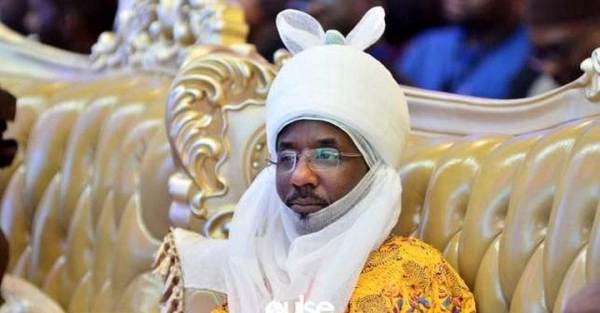
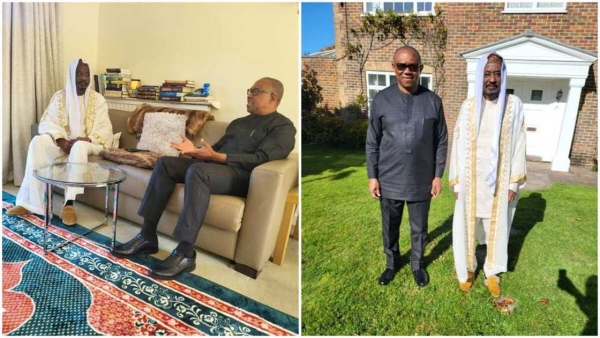























![[OPINION] Why Governments Depend Less on Local Researchers in Nigeria - Tunji Olaopa [OPINION] Why Governments Depend Less on Local Researchers in Nigeria - Tunji Olaopa](https://mail.reubenabati.com.ng/cache/mod_bt_contentslider/e6915e757baf3596a28d9d10d16d1215-7e596c84ab5d2a397c253c4d1b29b6f3_XL.jpg)

![[OPINION] NNPC Leadership: Agenda For Faltering Oil Giant - Dakuku Peterside [OPINION] NNPC Leadership: Agenda For Faltering Oil Giant - Dakuku Peterside](https://mail.reubenabati.com.ng/cache/mod_bt_contentslider/d10c0490c9dda75a2a777bf1bd8dc8cf-94a3d5fc62c8d13a514f3e3ea2fb1e57_XL.jpg)







![[OPINION] Tinubu administration: Many spokespersons, zero communication - Temidayo Akinsuyi [OPINION] Tinubu administration: Many spokespersons, zero communication - Temidayo Akinsuyi](https://mail.reubenabati.com.ng/cache/mod_bt_contentslider/3a6dde56c1ace811631af3683876e41f-b98cc5934c036201f867ff57bca9b273_XL.jpg)





















![[PRESS RELEASE] IGP Directs FID Operatives To Obtain Alhaji Sanusi’s Statement In Kano As NPF Withdraws Invitation Letter [PRESS RELEASE] IGP Directs FID Operatives To Obtain Alhaji Sanusi’s Statement In Kano As NPF Withdraws Invitation Letter](https://mail.reubenabati.com.ng/cache/mod_bt_contentslider/d582e3e91d3bd0cfd34210e5942ae4d6-ed0d722f630b1731739ec5400196e3a3_XL.jpg)
![[OPINION] Nigeria and the fading lights of justice - Chidi Anselm Odinkalu [OPINION] Nigeria and the fading lights of justice - Chidi Anselm Odinkalu](https://mail.reubenabati.com.ng/cache/mod_bt_contentslider/3b13bf9580c0e6e2b3c4cf4eaf444d97-ef2cf5d11bcf83a4e020129345d98fb5_XL.jpg)




![[OPINION] Can the new NNPCL Board tackle industry's critical problems? - Etim Etim [OPINION] Can the new NNPCL Board tackle industry's critical problems? - Etim Etim](https://mail.reubenabati.com.ng/cache/mod_bt_contentslider/da88b4013e9399359a71f68dfb1e8065-74c567d84aae7ad67540243bf4506aa9_XL.jpg)







![[OPINION] A Psychologist Advises Godswill Akpabio: Let Go of the Struggle, Prioritize Healing for Yourself and the Nation, and Return Natasha Akpoti-Uduaghan Now - John Egbeazien Oshodi [OPINION] A Psychologist Advises Godswill Akpabio: Let Go of the Struggle, Prioritize Healing for Yourself and the Nation, and Return Natasha Akpoti-Uduaghan Now - John Egbeazien Oshodi](https://mail.reubenabati.com.ng/cache/mod_bt_contentslider/3e3599e1a50cf78a9faab6784f6b4b1c-2f0b1c914530ba8d1f3326706436118a_XL.jpg)
![[OPINION] I Got a Call —Apostolic Exhortation to the Household of Nigeria - Prince Charles Dickson [OPINION] I Got a Call —Apostolic Exhortation to the Household of Nigeria - Prince Charles Dickson](https://mail.reubenabati.com.ng/cache/mod_bt_contentslider/f07d885a698270c963890ae1706c16db-8acacb3490b71d7942f1ffcd386a33a3_XL.jpg)
![[OPINION] Uromi Lynching: A Tragic Verdict On A Failed State - Isaac Asabor [OPINION] Uromi Lynching: A Tragic Verdict On A Failed State - Isaac Asabor](https://mail.reubenabati.com.ng/cache/mod_bt_contentslider/eab91a873d30dd2d132d20e43cbb8746-b33dac55af662fc13c67faff9d27a61b_XL.jpg)
![[OPINION] Profiling Natasha as Segilola, Sweetheart of 1001 Men - Festus Adedayo [OPINION] Profiling Natasha as Segilola, Sweetheart of 1001 Men - Festus Adedayo](https://mail.reubenabati.com.ng/cache/mod_bt_contentslider/d54778ad2e8762472d8388c0e58acbaf-8f65eab95bf374d4088cf3ba7e11b130_XL.jpg)
![[OPINION] Embracing AI And Technology: A Call For Journalists To Stay Ahead - Isaac Asabor [OPINION] Embracing AI And Technology: A Call For Journalists To Stay Ahead - Isaac Asabor](https://mail.reubenabati.com.ng/cache/mod_bt_contentslider/a8f8ed27caf2ec85140167be52e98f19-b5c25a2359489508b799d7ccc1c39101_XL.jpg)
![[OPINION] Martin Luther King Jr.: A Voice That Refuses To Be Silenced - Isaac Asabor [OPINION] Martin Luther King Jr.: A Voice That Refuses To Be Silenced - Isaac Asabor](https://mail.reubenabati.com.ng/cache/mod_bt_contentslider/b54c3e32d04eca11f1f604036ec88d07-37af26be02f238cf1e1fbb5df8558784_XL.jpg)




![[OPINION] Great Ogboru alters predictions on Delta 2027 - Dele Sobowale [OPINION] Great Ogboru alters predictions on Delta 2027 - Dele Sobowale](https://mail.reubenabati.com.ng/cache/mod_bt_contentslider/7447a32a4df44ed43457d177c579a627-8fb43f52ba7efd2c62e4abfd5bef5e89_XL.jpg)
![[OPINION] Humphrey Nwosu: Senate did not surprise me - Tonnie Iredia [OPINION] Humphrey Nwosu: Senate did not surprise me - Tonnie Iredia](https://mail.reubenabati.com.ng/cache/mod_bt_contentslider/c899233a52583836b710bc26b390fb03-e7f52b185aa6d8c51397570db3a9ca33_XL.jpg)


![[OPINION] Anambra 2025: A case of no vacancy? - Law Mefor [OPINION] Anambra 2025: A case of no vacancy? - Law Mefor](https://mail.reubenabati.com.ng/cache/mod_bt_contentslider/685ad4c31077e392bb41826d98f1ac6e-ed7a9e1188b16c48c4b3f6234db68523_XL.jpg)
![[OPINION] The Power Of Soft Power - Wole Olaoye [OPINION] The Power Of Soft Power - Wole Olaoye](https://mail.reubenabati.com.ng/cache/mod_bt_contentslider/4b4a0344d021e216f9a50a83c708825f-131a7fd05300bc9f7a064d30e04bec6f_XL.jpg)


![[OPINION] Urgent Need to Expand Nigeria’s Anti-Graft Toolkit - Waziri Adio [OPINION] Urgent Need to Expand Nigeria’s Anti-Graft Toolkit - Waziri Adio](https://mail.reubenabati.com.ng/cache/mod_bt_contentslider/e7fbe0e60b0f49cfe1032bdf43313ccf-0f0e39f0f3809c9214c78682ba3fe3e2_XL.jpg)
![[OPINION] Much ado about Uromi - Bolanle Bolawole [OPINION] Much ado about Uromi - Bolanle Bolawole](https://mail.reubenabati.com.ng/cache/mod_bt_contentslider/3fe4f6762de618610819d74e931a791f-2931a70d30f50a2445c91fd76718d8ed_XL.jpg)
![[PRESS RELEASE] Atiku Mourns the Passing of Jerry Vampa, Devoted Aide of Over Three Decades [PRESS RELEASE] Atiku Mourns the Passing of Jerry Vampa, Devoted Aide of Over Three Decades](https://mail.reubenabati.com.ng/cache/mod_bt_contentslider/4705cb34c186bb597f40f3b2f68e290a-b4c79c5ae215fe521a8afde529398f8b_XL.jpg)

























![[OPINION] Nigeria: A country run haphazardly - Ugoji Egbujo [OPINION] Nigeria: A country run haphazardly - Ugoji Egbujo](https://mail.reubenabati.com.ng/cache/mod_bt_contentslider/bd8c2edc76a4c0f82cf7c4e568ae5322-d2d472ede4ca6b710531a375bb18707e_XL.jpg)



![[OPINION] Tinubu, Atiku, and Argentina: United by Pain, Divided by Rhetoric - Farooq A. Kperogi [OPINION] Tinubu, Atiku, and Argentina: United by Pain, Divided by Rhetoric - Farooq A. Kperogi](https://mail.reubenabati.com.ng/cache/mod_bt_contentslider/752dcfe50440f2863b33db9c53f11c76-f8dce5cb80263ca6b540fcad159b8542_XL.jpg)


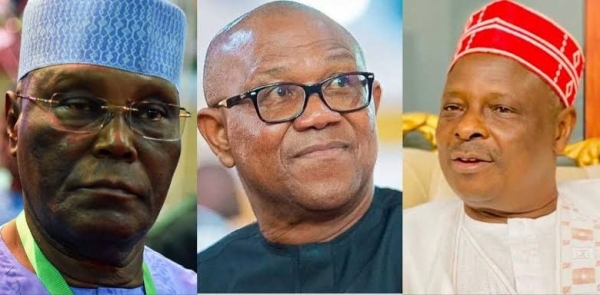
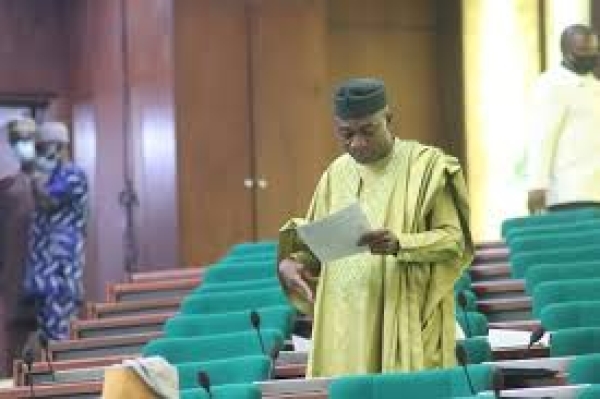
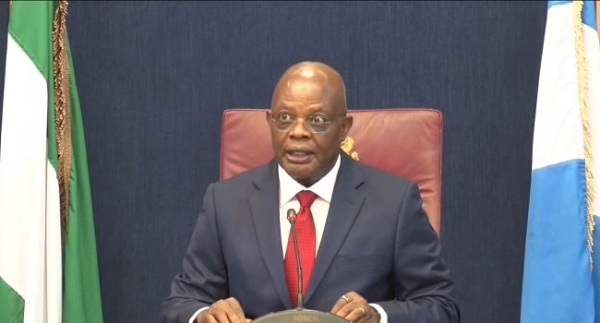



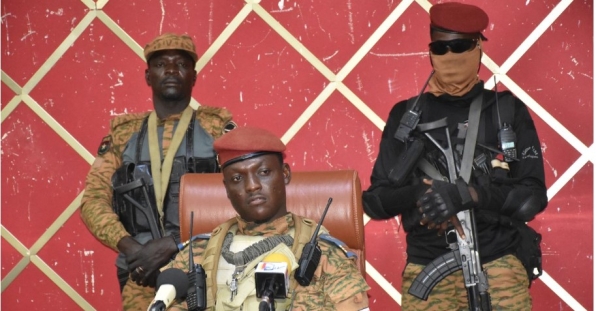
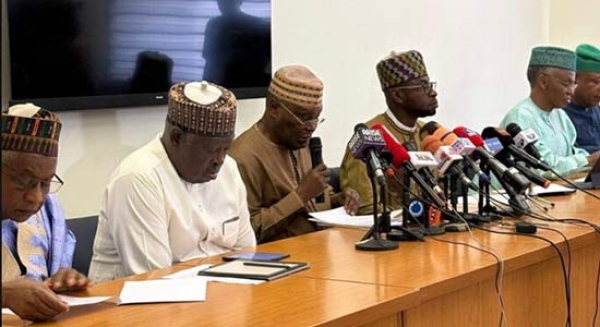

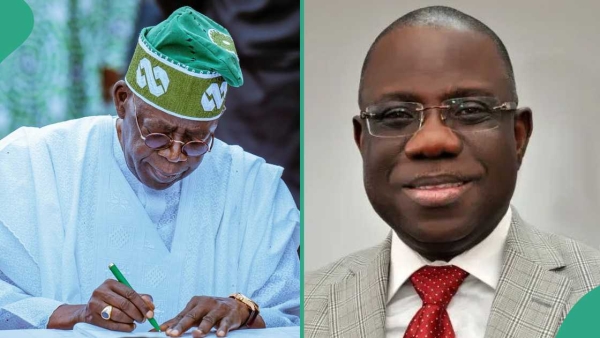
![[OPINION] The Uromi 16 And The Problem With Nigeria - Reuben Abati](/media/k2/items/cache/4b585f7414a3fc875b761851d4c5fcd4_XL.jpg?t=20250401_101706)
